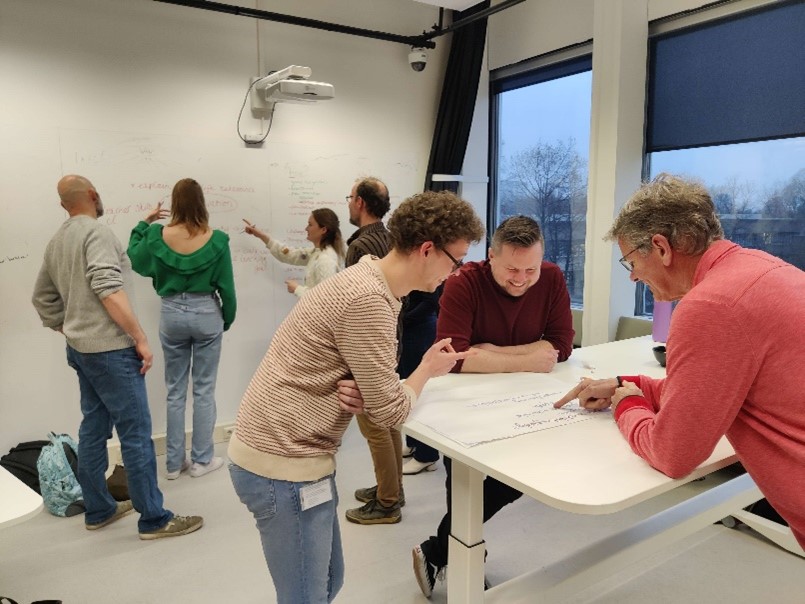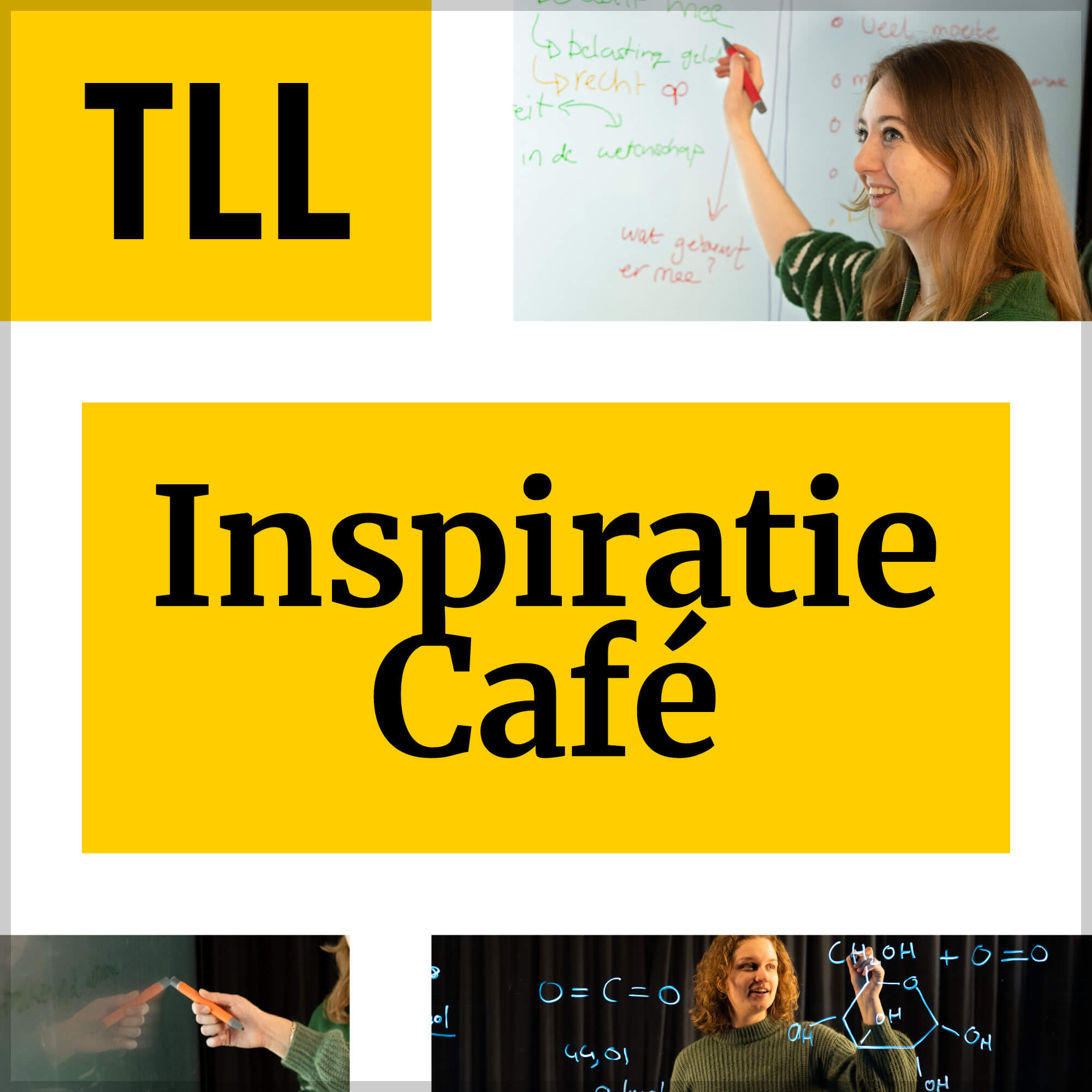News
Looking back on the Inspiration Café – Collaborative Learning
In education, collaboration plays a crucial role in fostering engagement, interaction, and knowledge exchange among students. On February 29, a special workshop took place during the Inspiration Café, led by educational innovators Laurien Janssen, Tom Frijns, and Len Dijstelbloem. The focus? The power and challenges of collaborative learning. The session inspired participants to reflect on how they can integrate this learning method into their teaching practices, supported by thought-provoking questions and personal reflections.

The workshop began with a fun icebreaker: Participants were asked to mimic animal sounds corresponding to images they had received. The search for fellow “turkeys,” “cows,” and “lions” led to a lot of laughter and efficiently divided the attendees into groups.
Collaborative Learning: the big questions
After the introduction, each group was presented with three key questions:
1. How do you currently apply collaborative learning?
2. Why do you choose to use it?
3. What challenges do you face, and what do you need to overcome them?
These questions led to valuable insights into what collaborative learning means, the benefits it offers, and the challenges it presents. Issues like managing diverse backgrounds, personalities, and perspectives came to the forefront. Participants also discussed motivating students during group work, balancing contributions, and the skills teachers need to effectively guide the process. The challenges discussed were widely recognized by participants, regardless of their backgrounds or roles.
Everyone was then encouraged to brainstorm solutions in new groups, which led to some concrete proposals. Working together, we focused on generating ideas to address these challenges.
- Managing Diversity
Group diversity can be a challenge, but also a strength. Using tools like logbooks, anonymous feedback, and careful role assignment can positively influence group dynamics. Clear roles and support in assigning them can help prevent potential conflicts and improve collaboration.
- Create motivation for collaboration
Motivating students to collaborate is essential. This can be achieved by clearly communicating the value of collaborative learning, supported by examples and case studies. Integrating collaboration into the curriculum from the outset and encouraging reflection on its benefits can help foster a culture of teamwork among students.
- Structurally support teacher skills
Teachers need the right tools and training to effectively facilitate collaborative learning. Providing clear guidelines, rules, and checklists is crucial, as are professional development trainings that support teachers in their role as facilitators. This includes understanding how to interact with students, managing conflicts within groups, and addressing issues such as distributing workload and tasks.
Conclusion of the workshop
The workshop revealed a shared vision: that collaborative learning should play a significant role in our education system. However, it also highlighted a lack of resources and recognition within Utrecht University needed to facilitate this effectively. As a result, the idea of forming a special interest group for collaborative learning was proposed, which was met with enthusiasm by many participants. The Inspiration Café succeeded in prompting us to think more deeply about how improved forms of collaborative learning can enrich not only teachers and students but the entire field of education.
Are you inspired to integrate collaborative learning into your program? Visit the Teaching and Learning Collection website for more information.

